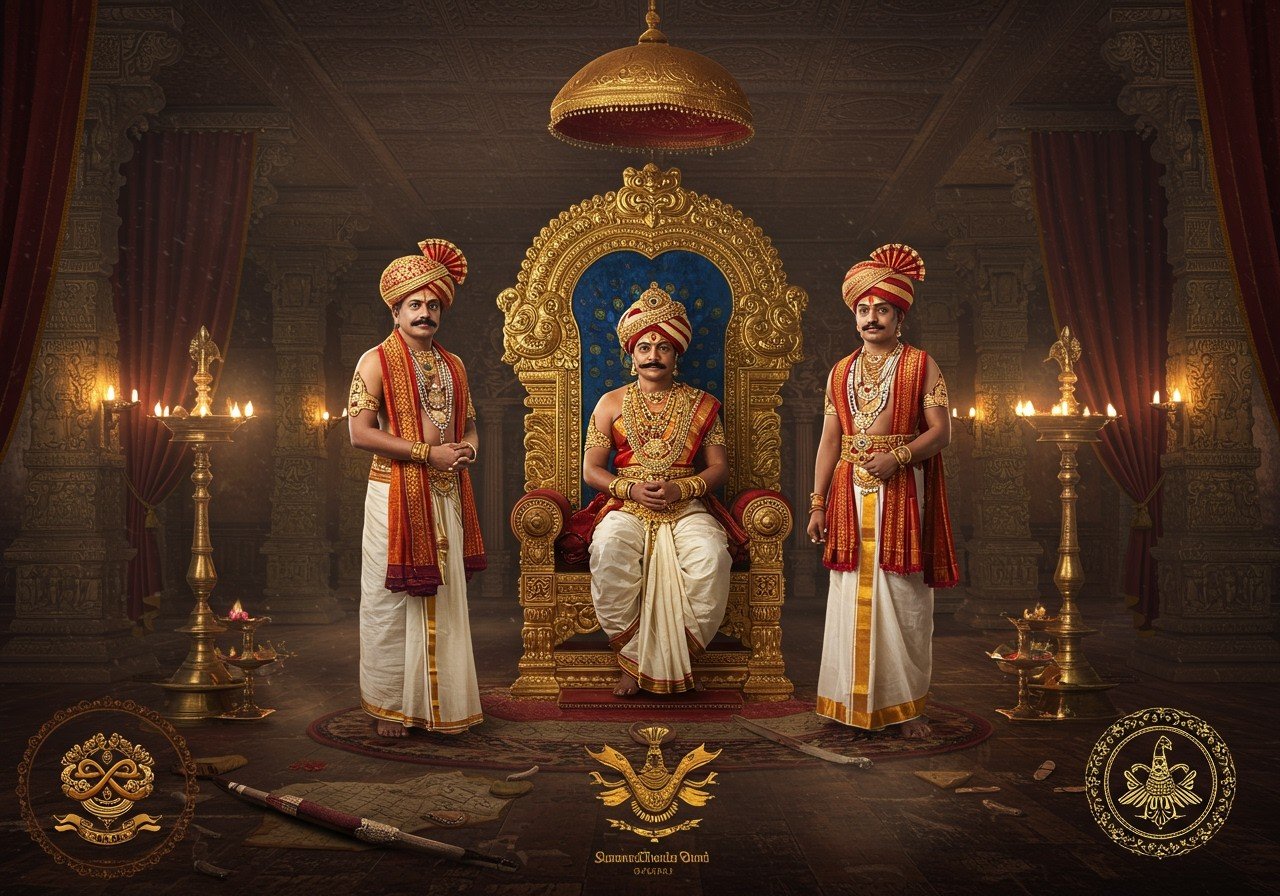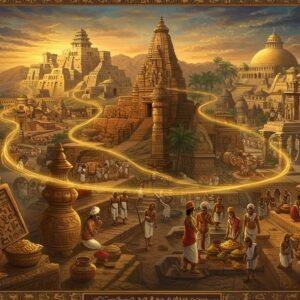
The Tondaiman dynasty holds a prominent place in the history of South India, particularly in the Pudukkottai region. This blog post delves into the lives and contributions of significant figures from this lineage, offering insights into their roles and the enduring legacy they left behind. Understanding their impact provides a glimpse into the rich cultural tapestry of the Pudukkottai royal family. This dynasty ruled from the 17th to the 20th century, establishing their kingdom around 1680. Remarkably, Pudukkottai stood as the sole princely state in Tamil Nadu, boasting its own currency, flag, and coat of arms even after India gained independence in 1948.
Martanda Bhairava Tondaiman (1886-1928)
Martanda Bhairava Tondaiman’s reign as Raja of Pudukkottai was marked by a distinctive blend of tradition and modern influence, largely due to his Western education.
Influence of Western Education
- His Western education significantly shaped his approach to governance, allowing him to introduce modern concepts and administrative practices to Pudukkottai.
- He incorporated Western ideas into his policies, fostering a unique blend of traditional and modern governance in his kingdom.
Contributions and Modernization
- He spearheaded the development of essential infrastructure, including the establishment of schools and hospitals, and the construction of roads and public buildings. These initiatives significantly contributed to the modernization of Pudukkottai.
- Beyond infrastructure, Martanda Bhairava Tondaiman championed social reforms, further propelling the modernization of the region and improving the lives of its people.
Diplomacy, Patronage, and Challenges
- He skillfully navigated diplomatic relations, maintaining strong ties with the British colonial administration while also fostering connections with other Indian princely states. This diplomatic acumen helped ensure the stability and prosperity of Pudukkottai.
- A patron of arts and culture, Martanda Bhairava Tondaiman actively supported local artistic expression and played a crucial role in preserving the region’s unique cultural heritage for future generations. His reign saw the flourishing of traditional art forms and cultural practices.
- His rule was not without its challenges. He faced political pressures and economic difficulties, demonstrating his leadership in navigating complex situations and ensuring the continued well-being of his kingdom.
Raja Ramachandra Tondaiman Bahadur
Raja Ramachandra Tondaiman Bahadur played a pivotal role in consolidating the strength and influence of the Pudukkottai royal family.
Administrative Acumen and Stability
- His administrative skills were instrumental in implementing policies that fortified the kingdom. He focused on strengthening governance structures, revenue collection, and judicial systems, all of which contributed to the overall stability and prosperity of Pudukkottai.
- Raja Ramachandra Tondaiman Bahadur prioritized education and healthcare, understanding their importance in the long-term development of his kingdom. He invested in establishing educational institutions and healthcare facilities, expanding access to these essential services for his people.
- He adeptly maintained peace and stability within the region during a period of significant political change. His ability to navigate complex relationships with both British officials and other Indian rulers ensured the continued autonomy and prosperity of Pudukkottai.
Patronage and Legacy
- A staunch supporter of religious and cultural activities, Raja Ramachandra Tondaiman Bahadur played a vital role in preserving the rich heritage of Pudukkottai. He patronized traditional art forms, religious institutions, and cultural events, ensuring the continuity of these practices for future generations.
- His rule left an indelible mark on the region, shaping its development and cultural landscape for years to come. His legacy continues to inspire and influence the people of Pudukkottai, serving as a testament to his effective leadership and dedication to his kingdom.
Rajagopala Tondaiman
Rajagopala Tondaiman holds a unique position in history as the last ruling Raja of Pudukkottai before its integration into the Indian Union in 1948. He gracefully handed over the state’s treasury, marking a significant transition in Pudukkottai’s history.
Leadership, Diplomacy, and Transition
- His education prepared him for the complexities of leadership, equipping him with the knowledge and skills necessary to navigate the challenges of his time. He implemented modern administrative practices and invested in infrastructure development, laying the groundwork for Pudukkottai’s future.
- He maintained crucial diplomatic relationships with other princely states and the British administration. This diplomatic prowess allowed him to effectively represent the interests of Pudukkottai during a period of significant political transition.
- Rajagopala Tondaiman played a crucial role during the transition period leading up to India’s independence and the subsequent integration of princely states into the Indian Union. His leadership ensured a smooth transition for Pudukkottai, minimizing disruption and facilitating its integration into the newly formed nation.
Contributions and Legacy
- He was a strong advocate for social and cultural development, supporting arts, education, and religious institutions. His patronage enriched the cultural landscape of Pudukkottai and contributed to the well-being of its people.
- While his rule faced challenges, particularly during the complex integration process, his legacy remains significant in Pudukkottai’s history. He is remembered for his leadership during a pivotal moment in India’s history and his dedication to the welfare of his people.
Poojn.in: Your Source for Traditional Puja Items
For those seeking authentic and high-quality puja items, poojn.in offers a wide selection of products perfect for traditional ceremonies and rituals. From diyas and incense to puja thalis and more, poojn.in caters to all your spiritual needs.
Conclusion
The Tondaiman dynasty’s legacy is deeply interwoven with the cultural and historical fabric of Pudukkottai. Their contributions to infrastructure, education, and social reform modernized the region while preserving its rich heritage. From Martanda Bhairava Tondaiman’s modernizing influence to Rajagopala Tondaiman’s leadership during a period of immense change, each ruler played a unique and vital role. Their combined efforts in diplomacy, patronage of the arts, and focus on modernization have left a lasting impact, ensuring their influence continues to resonate in Pudukkottai today. Even today, the Tondaiman family remains involved in various aspects of the community, including family-owned trusts, sports clubs, and temple trusteeship, demonstrating their continued commitment to the region.


